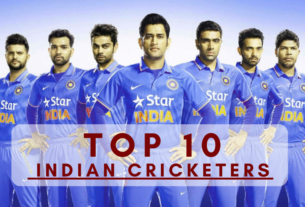Top 10 Myths in Indian Society That Need Debunking
India is a land of traditions, but not all age-old beliefs hold up in the light of truth. Many myths, whether social, cultural, or medical, continue to influence everyday life, decisions, and attitudes. In 2025, busting these myths is key to building a more progressive, inclusive, and informed society.
Let’s take a closer look at the top 10 myths in Indian society that need to be re-examined and redefined.
1. “Periods Make Women Impure”
The Myth: Menstruating women should not enter temples or cook
The Truth: Menstruation is a natural biological process, not a sign of impurity
Why It Persists: Tied to cultural taboos and lack of education
Learn More: Menstrual Hygiene Day
Need of the Hour: Period education in schools and rural outreach
2. “Fair Skin Equals Beauty”
The Myth: Fairer skin is superior or more attractive
The Truth: Beauty is subjective and inclusive of all skin tones
Impact: Skin-lightening creams and discrimination in marriage/job markets
Initiative: Dark Is Beautiful Campaign
Progress: Ads are being banned from showing fairness as a success factor
3. “Boys Don’t Cry”
The Myth: Expressing emotion makes men weak
The Truth: Emotional vulnerability is human, not gendered
Result: Mental health struggles among men are often hidden
Support: The ManKind Project India
Encouragement: Promote emotional literacy among all genders
4. “Dowry Is Just a Tradition”
The Myth: Dowry is a normal part of marriage gifts
The Truth: Dowry is illegal in India and contributes to abuse and violence
Law: Dowry Prohibition Act, 1961
Resource: National Commission for Women
Action: Empower women to say no and report dowry demands
5. “Mental Illness Is a Curse or Weakness”
The Myth: Depression and anxiety are signs of personal failure
The Truth: Mental health issues are medical conditions requiring support
Consequence: Stigma prevents many from seeking help
Help Line: iCall – Mental Health Support
Growth: Mental health apps and therapy culture on the rise
6. “Career Options Are Limited to Engineering or Medicine”
The Myth: Only STEM careers lead to success
The Truth: Creative, liberal arts, and vocational careers are equally valuable
Impact: Student stress, identity loss, lack of career satisfaction
Career Support: Mindler – Career Guidance Platform
Encouragement: Let kids explore interests before deciding paths
7. “Divorce Is a Shame”
The Myth: Divorced individuals are failures or undesirable
The Truth: Divorce can be a healthy decision to leave toxic relationships
Stigma: Especially hard on women, causing emotional and social stress
Legal Aid: Nyaaya – Free Legal Info
Awareness: Normalize choosing personal well-being over social pressure
8. “Homosexuality Is Unnatural”
The Myth: LGBTQ+ identities are a Western influence
The Truth: India has a long queer history in mythology and society
Milestone: Section 377 decriminalized in 2018
Support: Naz Foundation India
Need: Inclusive education and anti-discrimination laws
9. “Vaccines Cause Infertility”
The Myth: Especially common during COVID-19 vaccine rollout
The Truth: No medical evidence supports this
Effect: Misinformation leads to low immunization rates
Trusted Source: WHO on Vaccine Myths
Tip: Follow science-backed medical advice
10. “Only Women Are Responsible for Household Duties”
The Myth: Housework is the woman’s job, even if she works full-time
The Truth: Gender roles are outdated; responsibilities should be shared
Impact: Burnout, inequality, lack of support for women’s careers
Movement: Share The Load – Ariel India
Next Step: Normalize housework participation by all family members
Why Debunking These Myths Matters
- Breaks generational cycles of misinformation
- Fosters critical thinking and evidence-based understanding
- Empowers youth, women, and marginalized groups
- Enables a more equitable, inclusive, and just society
How You Can Help
- Educate yourself and others through verified sources
- Speak up when you hear regressive statements
- Share content and organizations that advocate truth and awareness
- Use platforms like org India to support social reforms
Conclusion
Many of India’s social myths persist not because they are true, but because they go unchallenged. It’s time we replace blind tradition with informed thinking. When we question what we’ve inherited, we begin to shape a better future.
To read more on progressive living, real stories, and Indian society’s transformation, visit Untold You—where myths end and awareness begins.





